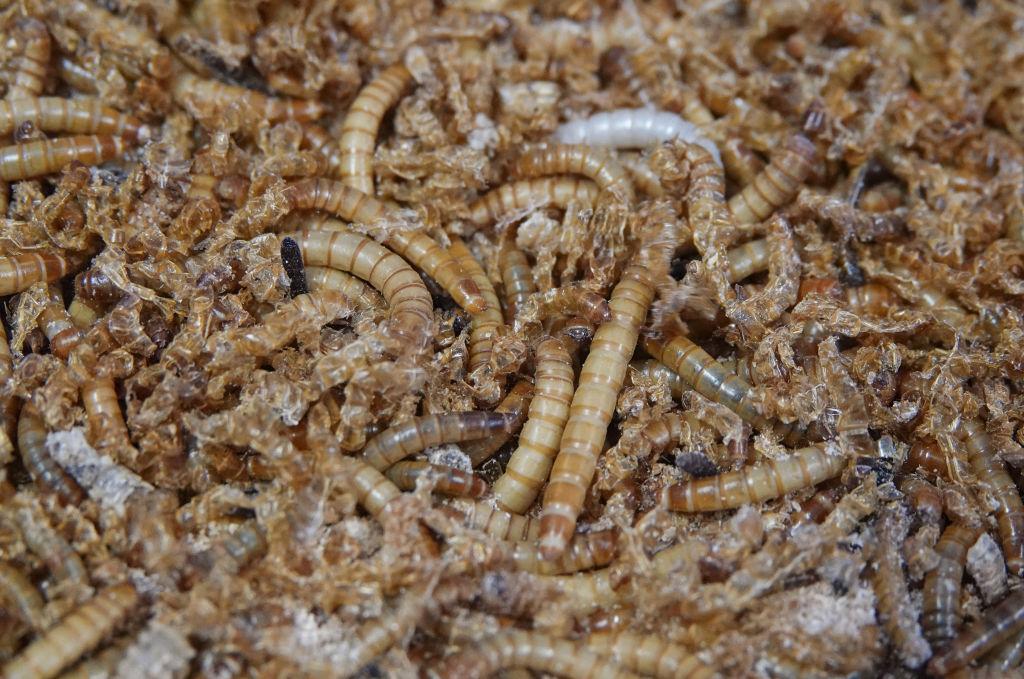
Scientists Experiment with Mealworms to Degradate Polystyrene
In a groundbreaking innovation, Serbian scientists have discovered a novel method to degrade polystyrene, a type of plastic that is notorious for its non-biodegradable nature. The team has successfully used mealworms, the larvae of the mealworm beetle, to break down polystyrene into harmless components. This eco-friendly approach has significant implications for the plastic pollution crisis, which has become a major environmental concern worldwide.
Polystyrene, commonly used in packaging materials, cups, and cutlery, is one of the most widely used plastics globally. However, its non-biodegradable nature has led to severe environmental consequences, including the accumulation of microplastics in our ecosystem. The conventional method of disposing of polystyrene involves incineration, which releases carbon dioxide and other pollutants into the atmosphere. This approach has been criticized for its environmental impact.
The Serbian research team, led by Dr. Boris Vasiljev, has made a significant breakthrough by adapting mealworms to biodegrade plastic. The larvae have a unique ability to break down polystyrene into carbon dioxide and water, leaving no microplastic residue behind. This natural process is not only environmentally friendly but also produces significantly less carbon dioxide compared to incineration.
According to Dr. Vasiljev, “The bacteria in the mealworms’ guts are responsible for breaking down the polystyrene. This process is completely natural and doesn’t release any harmful chemicals into the environment.” The researcher emphasized that the mealworms emit significantly less carbon dioxide compared to incineration when breaking down polystyrene. This finding has significant implications for reducing the environmental impact of plastic disposal.
The Serbian team’s experiment involved feeding mealworms polystyrene particles and monitoring their progress. After a few weeks, the larvae were able to break down the plastic into its constituent parts, resulting in a significant reduction in polystyrene mass. The researchers also conducted controlled experiments to compare the effectiveness of mealworms with traditional methods of plastic degradation, such as enzymes and microorganisms.
The results of the study have far-reaching implications for the plastic pollution crisis. If scaled up, the mealworm-based method could provide a sustainable solution for degrading polystyrene and other non-biodegradable plastics. This approach could also help reduce the staggering amount of plastic waste that ends up in our oceans and landfills.
The use of mealworms to degrade polystyrene is not without its challenges. The larvae require a controlled environment to thrive, and the process is still in its infancy. However, the potential benefits of this innovative approach make it an attractive solution for addressing the plastic pollution crisis.
The Serbian research team’s experiment has sparked a new wave of interest in exploring the potential of insects to degrade plastic. Other researchers are now investigating the use of bees, ants, and even fungi to break down plastic waste. This convergence of scientific expertise and innovative thinking has the potential to revolutionize our approach to plastic waste management.
In conclusion, the Serbian scientists’ experiment with mealworms to degrade polystyrene is a groundbreaking innovation that could have significant implications for addressing the plastic pollution crisis. By harnessing the natural abilities of insects to break down plastic, we may be able to develop more sustainable and environmentally friendly solutions for disposing of plastic waste.
News Source:
https://ddindia.co.in/2025/08/serbian-scientists-experiment-with-mealworms-to-degrade-polystyrene/






